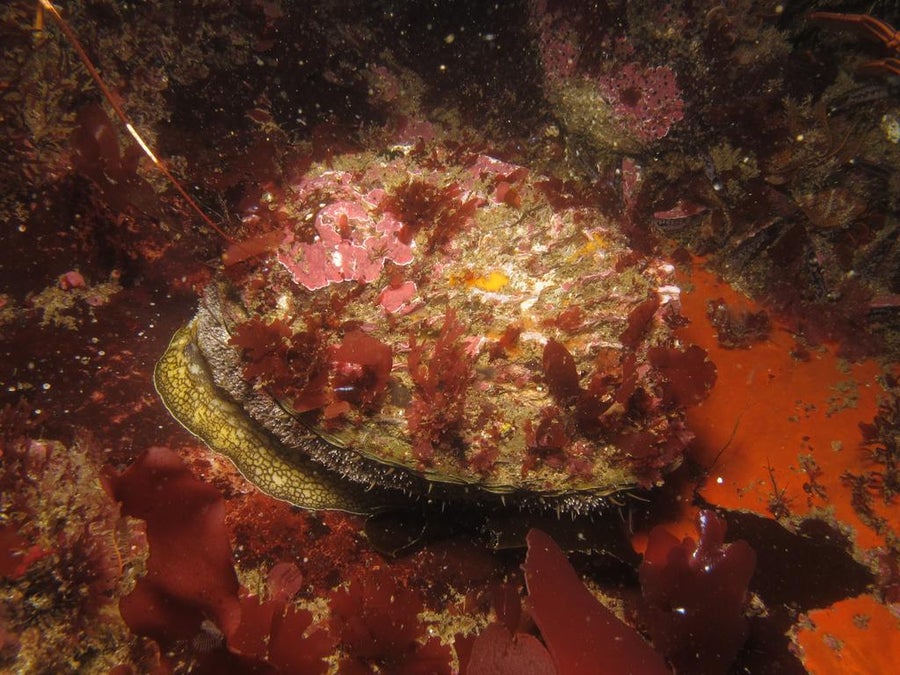This article was published in Scientific American’s former blog network and reflects the views of the author, not necessarily those of Scientific American
A pearly mollusk is worth gold to poachers.
The illegal trade in South African abalone (known locally as perlemoen, Haliotis midae) has soared in recent years. According to data presented this week at a fisheries conference, poachers now steal 7 million abalones a year, up from 4 million in 2008.
The giant sea snails, which can reach 20 centimeters in width, are mostly trafficked to Asia where they are valued as a delicacy and as a purported aphrodisiac.
On supporting science journalism
If you're enjoying this article, consider supporting our award-winning journalism by subscribing. By purchasing a subscription you are helping to ensure the future of impactful stories about the discoveries and ideas shaping our world today.
South Africa’s Department of Agriculture, Forestry and Fisheries (DAFF) puts the value of this illegal trade at close to $440 million a year.

Photo: Derek Keats. Used under Creative Commons license
The country reinstated its limited legal abalone fishing industry a few years ago, but government figures peg the illegal trade at ten times the size of the legal market.
Abalone poachers tend to be local fishers, but smuggling has ties into international syndicates trafficking in multiple species. Earlier this month two men were arrested in Namibia with a kilogram of rhino horn pieces and 100 kilograms of dried abalone. The abalone was valued at more than 2.5 times the value of the rhino horn.
As with most trafficked species, volume matters. Another abalone shipment intercepted by police last month weighed nearly half a ton.
South Africa plans to hold a two-day workshop on perlemoen fishing in three months to discuss regulations and attempts to address the poaching problem. DAFF, meanwhile, has called for abalone poaching to receive the same level of attention and prosecution as rhino poaching. Currently the crime carries a punishment of just a small fine—something easily paid by poachers and smugglers flush with pearly cash.
Previously in Extinction Countdown:
Fished Out: Wildlife Group Objects as South Africa Lifts Abalone Ban